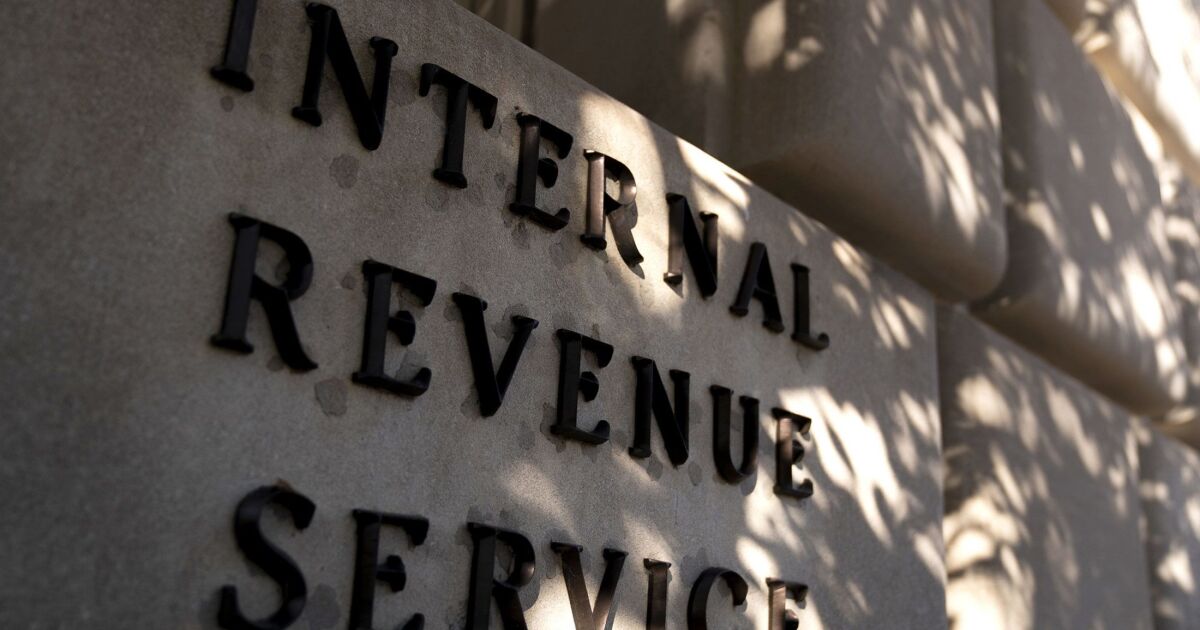The Internal Revenue Service’s development of its newly introduced business tax accounts and recent improvements in its tax pro accounts could be jeopardized if funding is cut.
The House voted Thursday to provide $14.3 billion in aid to Israel in its war against Hamas (see story). The bill is mainly paid for with cuts to the nearly $800 billion in funding that the IRS received under last year’s Inflation Reduction Act. Earlier this year, in a deal with congressional Republicans to avert a debt limit default, about $1.4 billion was rescinded from that amount and distributed to other government agencies. But the bill passed on Thursday mainly by House Republicans with some votes from Democrats is already facing opposition in the Senate and a veto threat from President Biden, as it leaves out aid to Ukraine and would reduce IRS funding. Republicans have been seeking $20 billion in cuts to the IRS budget since the start of the year.
That could mean reductions in taxpayer service, like the new Taxpayer Assistance Centers that the IRS has been opening around the country, and improvements to the IRS’s aging technology, such as the new business tax accounts that the IRS unveiled last month (see story).
“The business tax account will allow businesses to check their tax payment history, make payments, view notices, authorize powers of attorney and conduct other business with the IRS,” said IRS Commissioner Danny Werfel during a press conference. “The first phase of this account will allow unincorporated sole proprietors who have an active Employer Identification Number to set up a business tax account where they can view their business profile and manage authorized users. Future improvements will add more features to this account.”

Stefani Reynolds/Photographer: Stefani Reynolds/B
Over time the accounts will allow business taxpayers to check their tax payment history, make payments, view notices, authorize powers of attorney and conduct other business with the IRS. Future improvements will enable taxpayers to use their business tax accounts to view letters or notices, request tax transcripts, add third parties for power of attorney or tax information authorizations, schedule or cancel tax payments, and store bank account information.
Tax professionals are already finding the initial version of the business tax accounts to be useful, but limited. They’re hoping to see improvements, which will probably depend on the IRS funding remaining intact.
“The problem with the account now is that it’s limited to sole proprietors, so it’s very limited in scope,” said Bob Lickwar, a partner at UHY who is managing director of the firm’s Farmington, Connecticut office. “The business account is a really good idea. It’s going to allow you to make sure that your name and address and EIN information is correct. But more importantly than that, it’s going to allow you to check the status of your various returns. For sole proprietors, it’s pretty limited right now to 941’s and maybe some excise tax returns, but I think once this gets up and running like the individual accounts, this is a great idea.”
He finds the accounts to be potentially useful for business clients. “One of the things that we face as practitioners is occasionally being unable to access or get answers to client questions,” said Lickwar. “We’ll throw a question out there, for example, ‘did you make all of your estimated payments?’ And the answer is ‘I think so,’ and then when the return gets filed, all of a sudden a notice is flying back that one or two were missed.”
The business tax accounts build off the capabilities already available in the individual online tax accounts that the IRS has been offering in recent years.
“What we’ve tried to do with the individuals is have them all set up accounts, because then we can have them go in there and check their transcript and see what’s actually being held on account and circumvent the problem even before it starts, and I think it’s a great tool,” said Lickwar. “Once they get up and running and full fledged here, I think you’re going to have the same results. I would encourage my business clients to set up an account as I’ve encouraged my individual clients to do so.”
He would like to see the IRS add more functionality to the accounts. “I think they’ll add these over time,” said Lickwar. “What they’ll do, for example, is if there’s missing income, you can actually go in on the individual side and see where you received W-2’s and 1099’s from. It may not have all of the information that’s actually reported on the form. I think you’ll be able to do the same thing here if there are any 1099’s issued to the business, so at least it will give you an idea where things are coming from and if there’s issues. Once they add partnerships and S corps and C corps — this is more in the experimentation process for them right now — I think it will be a pretty quick turnaround where they’re able to upload the same type of information, including things like income reports, and more importantly, account transcripts, which will show prior balances due and payments posted for the current year in the form of estimated taxes. I think all of that will be added over time.”
The IRS is also improving the capabilities in its online Tax Pro Accounts, which it introduced in 2021. “We are making continued enhancements to our tax professionals’ online accounts, helping them manage their active client authorizations on file with a Centralized Authorization File database, which stores the information on individuals authorized to act on a taxpayer’s behalf,” said Werfel. “Tax professionals can now view their clients’ tax information, including balance due amounts. Also, Tax Pro Account users can now withdraw from their active authorizations online in real time.”
Lickwar has been finding those improvements useful as well. “I think the Tax Pro Accounts are really good because you can make sure, for example, that your CAF number is still up and running,” he said. “You can look at powers of attorney and information requests. I think the Tax Pro Account is a really good idea for practitioners. It doesn’t hurt to set it up. It allows you access to some more information. But that’s got to work, in my opinion, in tandem with the client setting up an account as well where you can share the information. One thing I like about the new Tax Pro Account is the ability to withdraw the power of attorney. It may be a client who’s no longer a client, or it may be a case that’s already solved, and you’re off and that power of attorney has expired. You go in there and get yourself off of it. That’s a great feature.”




